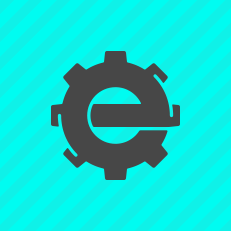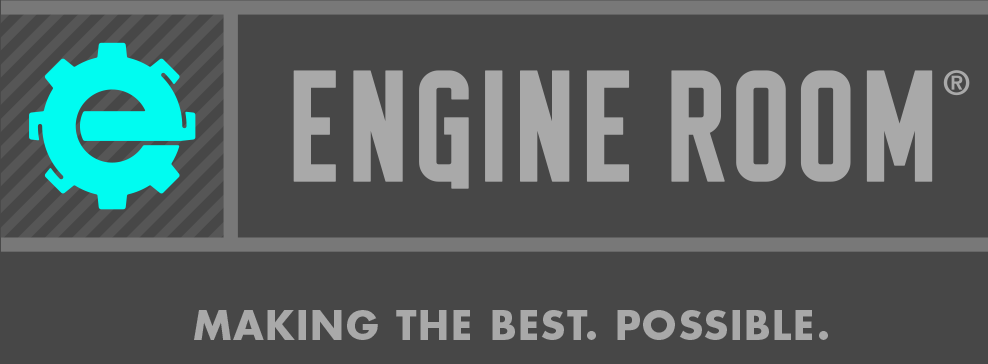As the name might suggest, WordPress got its start in the blogging realm.
Truth be told? WordPress is really great for blogging.
But as we start to shift to full-scale enterprise operating systems as a culture, many are asking if WordPress can do more. Can it handle the needs of a full enterprise as a robust, secure content management system? Is it truly up to the task?35% percent of the internet is powered by WordPress, or around 455,000,000 sites, and even sites like The New Yorker are using the platform to host and create their content.
However, the question remains, “Is WordPress Enterprise Ready?”
On WordPress
Many are drawn to WordPress because of its free base price, wide selection of themes, and open-source formatting. This content management system (CMS) can be used to build entire websites, all without having to have expensive coding knowledge.
It’s kind of like driving a car; you don’t need to know how the engine works, but you can use your car to get everywhere you want to go.
Likewise, WordPress can technically be used as an enterprise CMS, but it poses some problems.
On its own, WordPress presents some challenges. For starters, there are limited functionalities that are truly free. Some themes and plugins are free to use, but with every new theme and plugin come new vulnerabilities that, when applied across an entire enterprise, can topple a great organization. Just how serious is this issue?
For starters, cybercrime is quickly on the rise and will cost the global economy $6.1 trillion in 2021. Cyber attacks will happen every 11 seconds this year, and for this reason, many enterprises are looking for CMS solutions that will keep them safe while still enabling growth.
- The average annual cost of an infrastructure failure is $100,000.
- Each stolen record with sensitive or confidential information costs organizations around $141.
- The average total enterprise cost of a data breach is $3.62 million.
Additionally? Companies looking to support growth in the coming years have concerns that WordPress isn’t scalable on its own. Not every WordPress website is scalable or elastic, and many simply cannot handle traffic spikes without consumer performance suffering.
The problem here is that this can lead to lost business. 40% of consumers will abandon a page if it takes too long to load. Their definition of too long? A mere three seconds.
So while many people love WordPress because you only pay for the features you need and you have access to an entire database of plugins and themes from which to choose, it makes sense that there would be a question about whether or not it can support an entire enterprise. Is it secure enough? Will it scale without compromising performance?
Enter a Managed Platform
Those with concerns about WordPress scalability and security can look to a Managed Platform such as Pantheon or WP Engine. For this article we looked at WP Engine. WP Engine is more than just a managed hosting service for WordPress sites. It helps organizations boost performance and keep their data secure at any size or scale to create a total digital experience platform. \
By combining WordPress and WP Engine, enterprises can truly find the platform they are seeking. Here’s what you need to know.
WP Engine Is Scalable and High-Performing
Thanks to its partnership with Amazon Web Services (AWS), WP Engine can help enterprises combine all that WordPress has to offer with a modern tech stack. Through the use of AWS, WP Engine gives organizations the power to build and launch digital experiences quickly while still maintaining peak security and performance.
What does this mean for organizations looking to power WordPress? WP Engine can help foster maximum customer engagement with the power of an enterprise-level host architecture. One of the major benefits is that AWS makes it simple for enterprises to scale more easily than ever before. Plus, thanks to AWS global regions and redundancy across all traffic-serving layers, customers get the best uptime protection and risk mitigation, all while benefiting from the WP Engine-WordPress experience.
WP Engine Is Secure
It’s no secret that one of the major reasons organizations are hesitant to choose WordPress is because of the abundant need for plugins, which present certain security risks. WP Engine has strong security measures in place to keep public-facing websites and enterprise networks secure while still running at top performance. This is all part of their Dedicated Custom Secure Hosting offering.
Just what kinds of security features does WP Engine have in place?
- Disk write protection: Malicious code can work its way into a system through write operations. WP Engine limits the processes that get written to a disk, which means that even when there are vulnerabilities in a theme or plugin, they are harder to exploit.
- Disk write limitations: All disk write attempts are logged with WP Engine, which means that malicious and non-malicious code is trackable.
- Disallowed plugins: Some plugins expose organizations to vulnerabilities, and while usually, this is not the intention, it still poses a sincere threat. WP Engine’s security scanner pinpoints these plugins and disables them so they don’t leave data exposed.
- Proprietary firewalls: WP Engine has its own firewall in effect that directs good, bad, and malicious traffic, with multiple security “checkpoints” in place. Additionally, these firewalls prevent the public from ever accessing certain files and directories, so this data can’t be breached by intruders.
- User enumeration: Sometimes, bots “scrape” user information to use it later. WP Engine automatically blocks these types of requests so your users’ personal information and account information isn’t scrapped.
WP Engine Is SOC 2 Certified
In 2020, WP Engine successfully completed its Service Organization Control (SOC 2) Type II examination, specifically for customer environments and User Portals.
What does this mean for users? WP Engine met all the audit standards put in place by the American Institute of Certified Public Accountants (AICPA) regarding security policies and procedures. This includes the security, availability, confidentiality, processing integrity, and privacy of customer data.
WP Engine users can trust that the digital experience platform is doing everything they can to keep their data secure. Not only is this a relief for organizations that rely on WP Engine, but it is excellent news for their clients and customers as well.
WP Engine Is Prepared with Global Edge Security
When it comes to global security, no organization is on top of it quite like OWASP (Open Web Application Security Project). WP Engine offers the best protection against the top OWASP-identified security vulnerabilities, with global edge security features like:
- Managed web application firewalls
- Advanced DDoS attack mitigation protocols
- Blocking of spammers that reduce overall performance
- Secure sockets layer (SSL)/transport layer security (TLS) encryption to prevent session hijacking at rest and in transport
- Smart routing for faster page load times
The Facts About WordPress and WP Engine
There’s no question that WordPress is the dominant content management system (CMS) on the web. And when it comes to full-enterprise CMS platforms, it’s clear that WordPress on WP Engine is the clear leader and dominant enterprise CMS.
WP Engine serves over 150,000 customers for 1.2 million digital experiences in over 150 countries, culminating in an impressive 5% of the total web. The result? WP Engine blocks more than 109 million malicious attacks every day.
In fact, of the top 200,000 sites on the web, WP Engine powers more than any other digital experience platform on the market. Properties running on WP Engine outpace even Adobe EM, Acquia, Automattic, and Sitecore.
Get Implementation Support
An entire enterprise is a lot to handle. And while WP Engine is up to the challenge, getting everything implemented exactly the way you need to happen is no small feat. At Engine Room Tech, we can ensure that your implementation goes smoothly. We’ll help you assess all the requirements and customizations you need, with a focus on scalability and security so that when you invest in the right plugins and themes and all of the hosting to make it happen, your investment pays off.
With the right implementation strategy, you can build a WordPress site that is:
- Secure
- Scalable
- SEO friendly
- REST API compatible
- User-friendly
- Multi-site and even multi-lingual supported
Simply put, WordPress is absolutely capable of functioning as your enterprise CMS — if it’s managed by an enterprise-ready, secure, scalable managed platform like WP Engine or Pantheon and if you get help from an experienced implementation team like Engine Room Tech.
Ready to learn more? Consult with our experts today!






